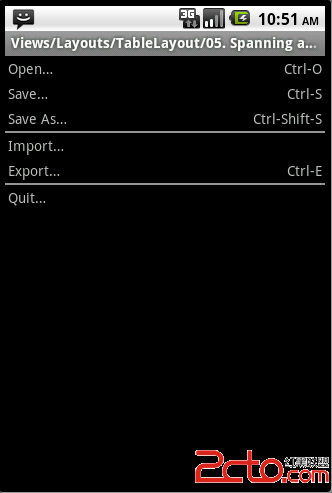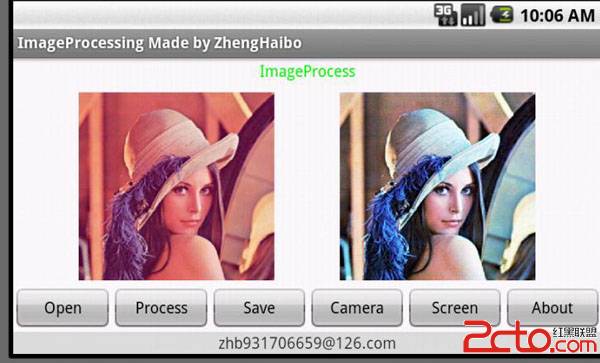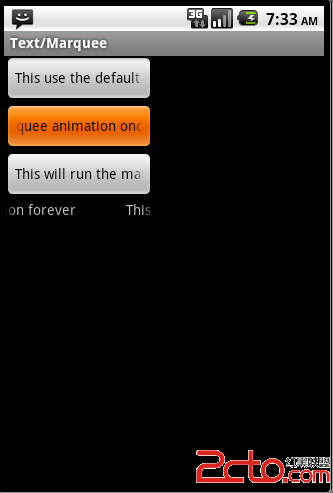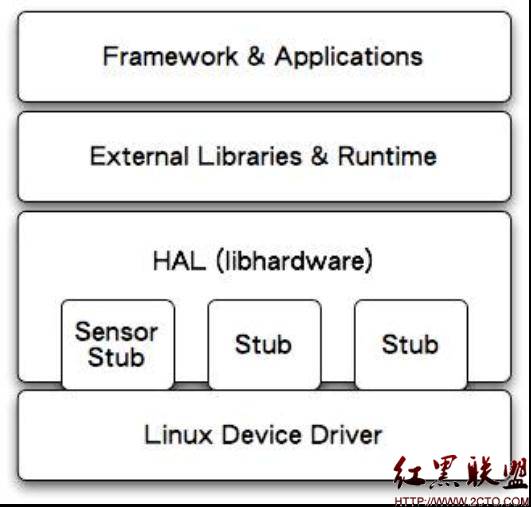android中LayoutInflater的使用
Inflater英文意思是膨胀,在Android中应该是扩展的意思吧。
LayoutInflater的作用类似于 findViewById(),不同点是LayoutInflater是用来找layout文件夹下的xml布局文件,并且实例化!而 findViewById()是找具体某一个xml下的具体 widget控件(如:Button,TextView等)。
(0)她可以有很多地方可以使用,如BaseAdapter的getView中,自定义Dialog中取得view中的组件widget等等。
它的用法有2种:
复制到剪贴板 Java代码
view plaincopy to clipboardprint?
LayoutInflater inflater = LayoutInflater.from(this);
View view=inflater.inflate(R.layout.ID, null);
或者干脆并成一句:
View view=LayoutInflater.from(this).inflate(R.layout.ID, null);
另一种方法:
复制到剪贴板 Java代码
view plaincopy to clipboardprint?
LayoutInflater inflater = (LayoutInflater)getSystemService(LAYOUT_INFLATER_SERVICE);
View view=inflater.inflate(R.layout.ID, null);
上面2种方法本质上是一样的,看下面的源码,form()调用的就是getSystemService():
复制到剪贴板 Java代码
Java代码
public static LayoutInflater from(Context context) {
LayoutInflater LayoutInflater =
(LayoutInflater) context.getSystemService(Context.LAYOUT_INFLATER_SERVICE);
if (LayoutInflater == null) {
throw new AssertionError("LayoutInflater not found.");
}
return LayoutInflater;
}
另外getSystemService()是Android很重要的一个API,它是Activity的一个方法,根据传入的NAME来取得对应的Object,然后转换成相应的服务对象。以下介绍系统相应的服务。
|
传入的Name |
返回的对象 |
说明 |
|
WINDOW_SERVICE |
WindowManager |
管理打开的窗口程序 |
|
LAYOUT_INFLATER_SERVICE |
LayoutInflater |
取得xml里定义的view |
|
ACTIVITY_SERVICE |
ActivityManager |
管理应用程序的系统状态 |
|
POWER_SERVICE |
PowerManger |
电源的服务 |
|
ALARM_SERVICE |
AlarmManager |
闹钟的服务 |
|
NOTIFICATION_SERVICE |
NotificationManager |
状态栏的服务 |
|
KEYGUARD_SERVICE |
KeyguardManager |
键盘锁的服务 |
|
LOCATION_SERVICE |
LocationManager |
位置的服务,如GPS |
|
SEARCH_SERVICE |
SearchManager |
搜索的服务 |
|
VEBRATOR_SERVICE |
Vebrator |
手机震动的服务 |
|
CONNECTIVITY_SERVICE |
Connectivity |
网络连接的服务 |
|
WIFI_SERVICE |
WifiManager |
Wi-Fi服务 |
|
TELEPHONY_SERVICE |
TeleponyManager |
电话服务 |
Java代码
//基本用法
public void showCustomDialog(){
AlertDialog.Builder builder;
AlertDialog alertDialog;
Context mContext = AppActivity.this;
//下面俩种方法都可以
//LayoutInflater inflater = getLayoutInflater();
LayoutInflater inflater = (LayoutInflater)
mContext.getSystemService(LAYOUT_INFLATER_SERVICE);
View layout = inflater.inflate(R.layout.custom_dialog,null);
TextView text = (TextView) layout.findViewById(R.id.text);
text.setText("Hello, Welcome to Mr Wei's blog!");
ImageView image = (ImageView) layout.findViewById(R.id.image);
image.setImageResource(R.drawable.icon);
builder = new AlertDialog.Builder(mContext);
builder.setView(layout);
alertDialog = builder.create();
alertDialog.show();
}
}
protected void showToast(int type) {
Toast.makeText(this, "*********", Toast.LENGTH_LONG).show();
LayoutInflater li = (LayoutInflater) getSystemService(Context.LAYOUT_INFLATER_SERVICE);
View view = li.inflate(R.layout.toast, null);
Toast toast = new Toast(this);
toast.setView(view);
toast.setDuration(type);
toast.show();
}
作者“Android学习心得”
补充:移动开发 , Android ,




